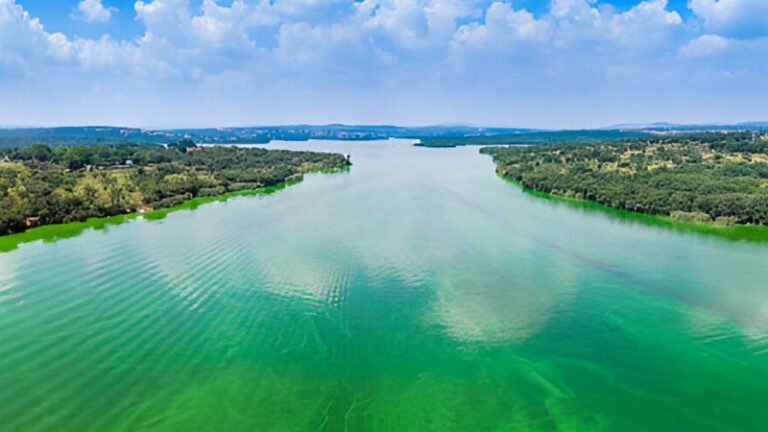Lake Texoma Should Be Capitalized: Why Proper Naming Matters More Than You Think

Introduction: A Name Worth Respecting
Lake Texoma Should Be Capitalized Lake Texoma isn’t just another body of water tucked away in the heart of the United States—it’s a landmark with history, culture, and economic significance. Yet, you’d be surprised at how often people write its name incorrectly. Whether it’s a social media post, a blog article, or even a printed travel guide, you’ll occasionally see “lake texoma” written in lowercase. At first glance, it might seem like a harmless mistake, but as any language expert or seasoned writer will tell you, capitalization is more than just a grammatical nicety. It reflects accuracy, respect, and professionalism.
When we talk about Lake Texoma, we’re not simply referencing any random lake; we’re naming a specific geographical location. In English, proper nouns—names of particular people, places, or things—require capitalization. This is not just a stylistic preference; it’s a fundamental rule. Ignoring it can make a piece of writing look careless, no matter how engaging or informative the rest of the content may be.
So, let’s dive into why Lake Texoma Lake Texoma Should Be Capitalized: Why Proper Naming Matters More Than You Think should Be Capitalized always be capitalized, the significance behind its name, and how small details like this can elevate the quality of your writing. Whether you’re a travel blogger, a student, or someone who just loves exploring grammar quirks, understanding the importance of this simple rule will sharpen your communication skills and help you stand out.
Understanding the Grammar Rule Behind Capitalization

At the core of the issue is a simple grammar principle: proper nouns are always Lake Texoma Should Be Capitalized: Why Proper Naming Matters More Than You Think capitalized. A proper noun refers to the unique name of a person, place, or organization—think “New York City,” “Mount Everest,” or “Amazon River.” In contrast, common nouns refer to general categories—such as “city,” “mountain,” or “river.” When you write Lake Texoma, the word “Lake” isn’t a mere description; it’s part of the official name. That means both “Lake” and “Texoma” deserve their capital letters.
People often confuse this because, in casual conversation, we might say, “I’m going to the lake this weekend.” In that sentence, “lake” is a common noun—it’s a generic term. But if you specify which lake—like Lake Texoma—you’re now dealing with a proper noun, and the rules change. It’s similar to saying, “I’m visiting the president” versus “I’m visiting President Lincoln.” One is general, the other specific.
Furthermore, the “Texoma” portion of the name isn’t just a random label. It’s a portmanteau of “Texas” and “Oklahoma,” the two states the lake Lake Texoma Should Be Capitalized: Why Proper Naming Matters More Than You Think borders. This unique regional significance makes it all the more important to respect its official title. Failing to capitalize it not only breaks grammatical convention but also strips away some of the cultural meaning embedded in the name.
The History and Significance of Lake Texoma’s Name
Understanding why Lake Texoma Lake Texoma Should Be Capitalized: Why Proper Naming Matters More Than You Think deserves proper capitalization also requires appreciating its history. The lake Lake Texoma Should Be Capitalized: Why Proper Naming Matters More Than You Think was created in 1944 following the construction of the Denison Dam on the Red River. As one of the largest reservoirs in the United States, it serves multiple purposes—flood control, water supply, hydroelectric power, and recreation. From its very beginning, the lake has held a special place in both Texas and Oklahoma communities.
The name “Texoma” captures the very essence of its location. By blending “Texas” and “Oklahoma,” it symbolizes the cooperation and shared natural resources between two states that, while distinct, are bound together by the Red River. When you fail to capitalize Lake Texoma, you’re not just making a grammar slip; you’re overlooking a symbol of regional unity and heritage. Properly writing it acknowledges the cross-border legacy that has existed for more than 75 years.
Moreover, Lake Texoma Lake Texoma Should Be Capitalized: Why Proper Naming Matters More Than You Think is more than a geographical landmark—it’s a hub for tourism, fishing, and local commerce. Thousands of visitors flock to the lake Lake Texoma Should Be Capitalized: Why Proper Naming Matters More Than You Think every year for boating, camping, and fishing tournaments. Resorts, marinas, and small businesses in the area depend on this tourism. Capitalizing its name correctly in marketing materials, travel blogs, or guidebooks isn’t just about grammatical correctness; it’s about promoting and preserving a destination that drives local economies and cultural pride.
How Small Writing Details Build Credibility
In professional writing—whether academic, journalistic, or commercial—small details like capitalization separate amateur work from expert communication. A single lowercase letter might not seem like a big deal, but readers subconsciously notice these things. A travel guide that says “lake texoma” instead of Lake Texoma Lake Texoma Should Be Capitalized: Why Proper Naming Matters More Than You Think might unintentionally signal carelessness or lack of authority.
Good writing is about trust. Readers trust that the author has researched carefully, checked facts, and respects the subject matter. Proper capitalization reinforces that trust. It shows that you value accuracy and that you’re not overlooking the finer points of grammar and style. For journalists and content creators, this can directly impact credibility, readership, and even SEO rankings—search engines favor polished, professional content.
The same principle applies to branding and marketing. If a resort near the lake Lake Texoma Should Be Capitalized: Why Proper Naming Matters More Than You Think publishes brochures or social media posts with inconsistent capitalization, it risks confusing or alienating potential visitors. A small mistake can dilute a brand’s image and reduce the perceived quality of its services. That’s why editors, proofreaders, and marketing professionals take capitalization seriously—it’s not mere pedantry; it’s professionalism.
Common Mistakes and How to Avoid Them
Even seasoned writers sometimes make capitalization errors with geographic names. One common mistake is capitalizing only part of the name—writing “Lake Lake Texoma Should Be Capitalized: Why Proper Naming Matters More Than You Think texoma,” for example. This happens when people assume the unique part of the name (“Texoma”) is all that matters. But in English, the descriptive word “Lake” is part of the official title, just like “Grand Canyon” or “Mount Kilimanjaro.” Both words must be capitalized.
Another frequent issue occurs when people write about the lake in a generic sense—such as, “We spent the weekend at the lake texoma Lake Texoma Should Be Capitalized: Why Proper Naming Matters More Than You Think area.” In this case, it’s tempting to lowercase “lake” because it feels like a description. But if you are specifically naming Lake Lake Texoma Should Be Capitalized: Why Proper Naming Matters More Than You Think Texoma, both words still need their capital letters, regardless of the sentence’s casual tone.
To avoid these pitfalls, get in the habit of double-checking proper nouns before publishing. Style guides like The Chicago Manual of Style or the Associated Press Stylebook are excellent resources. Most word processors and grammar-checking tools also flag improper capitalization, but nothing beats an attentive human eye.
Why Respecting Names Is a Sign of Cultural Awareness
Proper capitalization isn’t just about grammar—it’s also about respect. Names carry history, culture, and identity. When you capitalize Lake Texoma, you acknowledge the people who named it and the communities that thrive around it. Overlooking that is a subtle form of disrespect, even if it’s unintentional.
Think about how you’d feel if someone consistently misspelled or mis-capitalized your name. It may seem like a small error, but it diminishes the care and recognition you deserve. The same logic applies to place names. Lake Texoma Lake Lake Texoma Should Be Capitalized: Why Proper Naming Matters More Than You Think Texoma Should Be Capitalized: Why Proper Naming Matters More Than You Think represents decades of history, engineering achievement, and regional pride. Writing it correctly pays homage to that legacy.
Additionally, as we continue to document and share information across digital platforms, proper capitalization helps preserve historical accuracy. Future generations rely on written records to understand cultural landmarks. Maintaining correct names ensures that Lake Lake Texoma Should Be Capitalized: Why Proper Naming Matters More Than You Think Texoma’s story remains intact and accurately represented.
Final Thoughts: The Power of Capital Letters
At first glance, capitalizing Lake Texoma Lake Texoma Should Be Capitalized: Why Proper Naming Matters More Than You Think Texoma Should Be Capitalized: Why Proper Naming Matters More Than You Think might seem like a trivial matter—just two letters that happen to be uppercase. But those letters carry weight. They demonstrate grammatical knowledge, respect for a place’s history, and a commitment to professional writing standards.
Whether you’re drafting a travel blog, creating a fishing guide, or simply posting vacation photos on social media, taking the timehttps://newsbazz.co.uk/chris-hemsworth-height/#You_May_Also_Read



